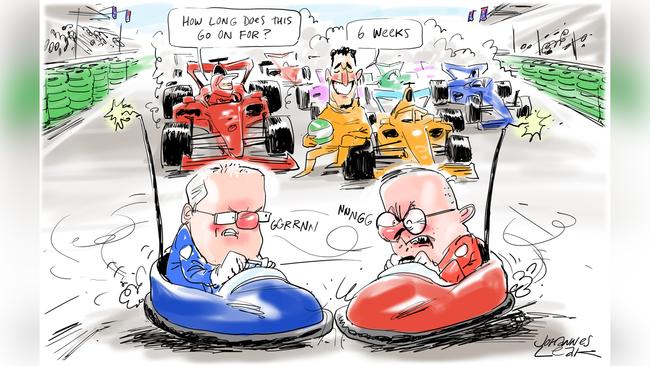
Indeed, the Prime Minister, who already got into trouble for visiting his ancestral Welsh village last year, couldn’t be starting from a worse place to get to an election victory. For the months and weeks leading to the election announcement, Morrison and the Coalition have been in a worse position than every prime minister and government since Paul Keating faced John Hewson in 1993 in what was deemed an unwinnable election for Labor.
In the last 30 years of federal elections the incumbent prime minister has had better personal standings and the government has had better support in the polls than Morrison. That comparison includes Keating in 1996 when he lost; John Howard in 2004 when he won against Mark Latham; Howard in 2007 when he lost to Kevin Rudd; Julia Gillard in 2010 when she lost a majority; Rudd when he lost to Tony Abbott in 2013; and Malcolm Turnbull, who barely survived by one seat in 2016. Most significantly, Morrison is behind where he was himself in 2019 before his “miracle win” against all odds.
But the Keating 1993 victory, the Howard 2004 win, Rudd’s “Kevin 07’ victory, Gillard’s move to minority government, Turnbull’s near-death experience against Bill Shorten in 2016 and Morrison’s 2019 shock win all demonstrate nationals polls and assumptions about elections on the back of a strong economy can be proved wrong in the ballot box.
All of these “surprise” wins or near losses demonstrate one election rule that remains true: all elections are different and the 2022 election is going to be more different than any in living memory. These results also demonstrate the importance of the election campaign itself in determining the outcome and convincing the “undecided and uncommitted” voters, of which there is a legion right now, who to support on polling day.
The Covid-19 pandemic has changed everything and makes predictions of election outcomes based on traditional political rules foolish and pointless; there has been a rupturing of the body politic, public psychology, the balance of federal-state political power, ideologies and party loyalty.
This worst-in-100-year pandemic explains in part why Morrison has lost the clear path to an election victory and yet it paradoxically provides a narrow path to victory for the Coalition because of the large part the pandemic has played in creating uncertainty exacerbated by natural disasters, China’s regional aggression, Russia’s invasion of Ukraine, economic recession, rising living costs and a destructive social debate over identity.
More than two years ago, Morrison’s personal standing had slumped coming out of the 2019 Black Summer bushfires only six months after his May election victory. His position seemed absurdly precarious so soon after re-election and yet he was in trouble.
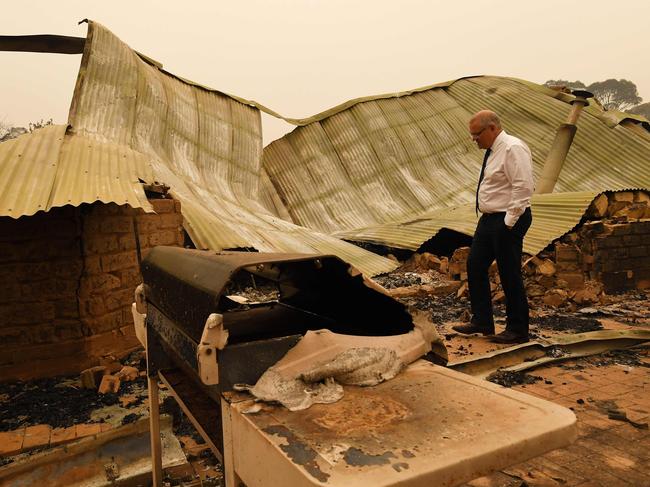
But Morrison’s response to the coronavirus outbreak, a quick order to shut the international border, the formation of the national cabinet of state and federal leaders and, later, vast job support and economic pump priming moved him back to stellar heights of popularity. But Anthony Albanese had recognised Labor’s defeat in 2019 was in part because the ALP underestimated Morrison and had not attacked him personally.
Pandemic border closures and city lockdowns, deaths and job losses as well as state-federal jurisdictions meant Morrison became the target of national anger and frustration, and the Opposition Leader relentlessly accused Morrison of failure on quarantine and vaccinations and the administration of the $300bn economic job and business support.
Combined with rising prices, stagnant wages, scandals about sexual harassment and an unprecedented media attack on a prime minister, Morrison’s standing fell, as did the Coalition’s primary vote.
Even as the pandemic impact in Australia lessened, lockdowns ended, deaths declined, vaccinations bloomed and the economy recovered from recession in record time with the creation of 400,000 jobs and an unemployment rate of 4 per cent, Morrison couldn’t get clear air for positive messages on national security and a world-beating economy.
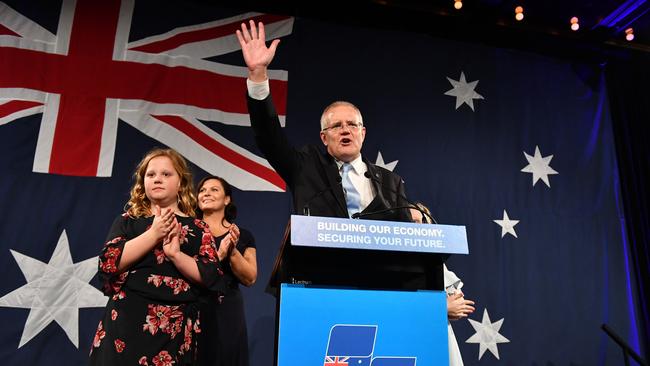
The most important national security agreements since the ANZUS Treaty 70 years ago – the Quadrilateral Security Dialogue with Japan, the US and India, and the AUKUS agreement to procure nuclear-powered submarines for Australia – were mired in whether Morrison “lied” to French President Emmanuel Macron over the cancellation of the French submarine contract.
Military aid to Ukraine – including 20 Bushmaster armoured personnel carriers – which will be delivered during the caretaker period of government is considered bipartisan as Albanese sticks close to Morrison and Peter Dutton on standing up to Russia.
So, this is how Morrison went from a star fighting the pandemic with predictions of an early election last year sweeping the Coalition back into power and a remarkable economic recovery to the worst-placed prime minister going into an election since 1993.
How then does he find his way to a second miracle win, which would be the healing of a sick nobleman’s son after the first of converting water to wine? Albanese’s argument against another miracle is that the Coalition is tired, “out of puff”, doesn’t have a vision and Morrison has failed and doesn’t care about anything but his own job.
Albanese has opened the campaign with a positive message on Labor and a negative one on Morrison, asking voters to support Labor: “Because we have a very clear plan for a better future for Australia. A better future that involves strengthening Medicare, making more things here, more secure work, dealing with the cost of living through cheaper childcare and cheaper energy prices.
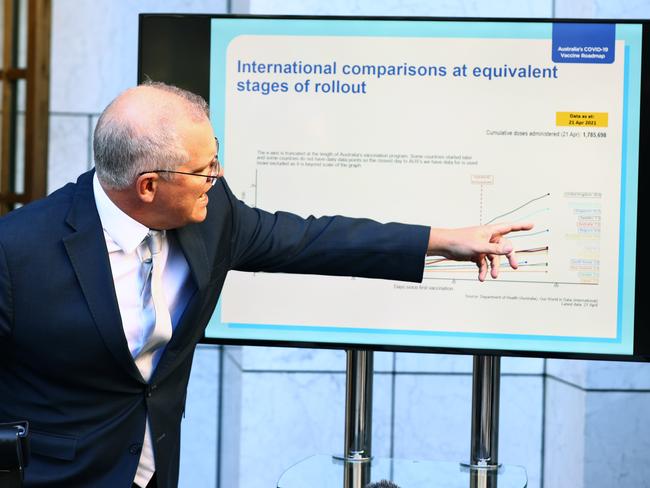
“The government just has a priority of trying to get through the next six weeks. The offers run out as soon as people have cast their ballot papers, then it will be back to business as usual. A government treading water … And a Prime Minister who’s more obsessed by looking after his own interests.”
Morrison’s response and appeal to voters is clear: “Now is not the time to risk it. This election provides a clear choice, with real consequences for Australia.
“Our government is not perfect. But we have been upfront. You know what we stand for, you can see our record of delivery, and you can see our plan for the future. Our economy has a lot of moving parts and a lot of risks. But also, many opportunities.
“Anthony Albanese and Labor have no economic plan. They would weaken our economy and put our recovery at risk.”
That’s Morrison’s plan and only hope to find the Coalition’s electoral victory.



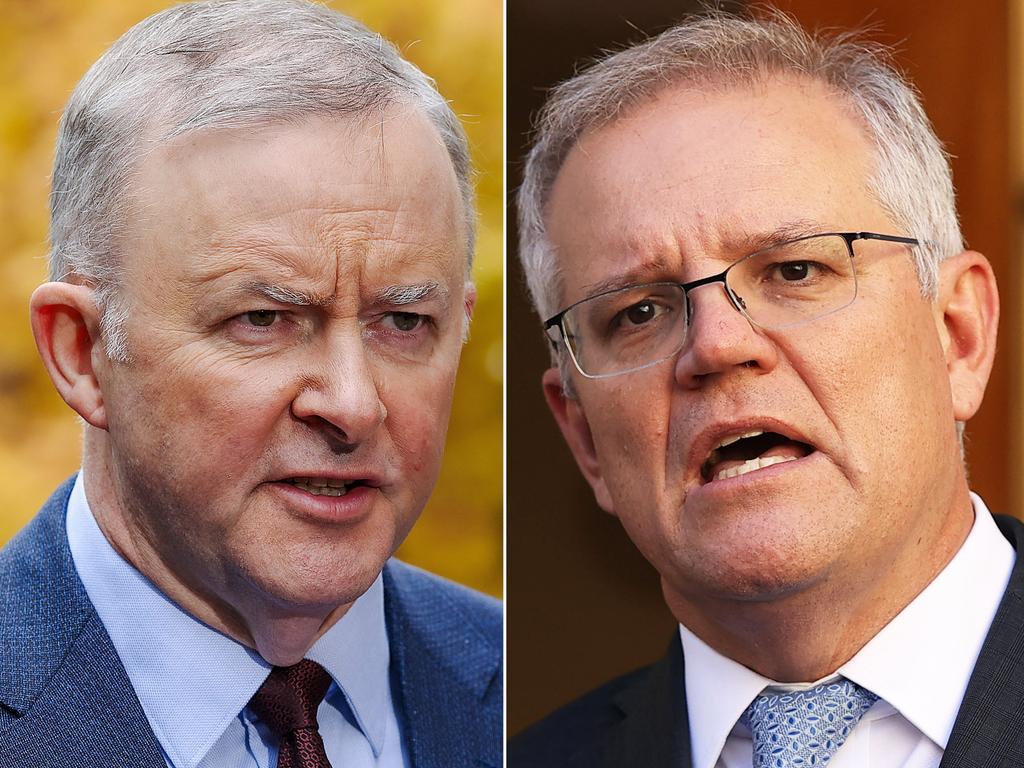
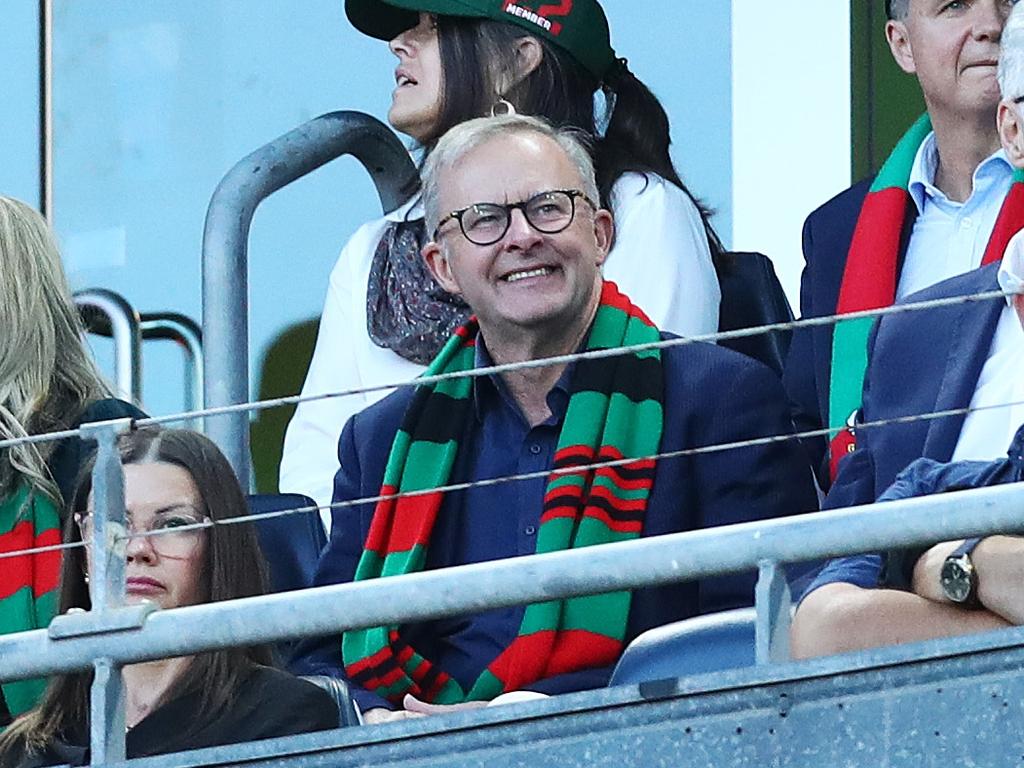
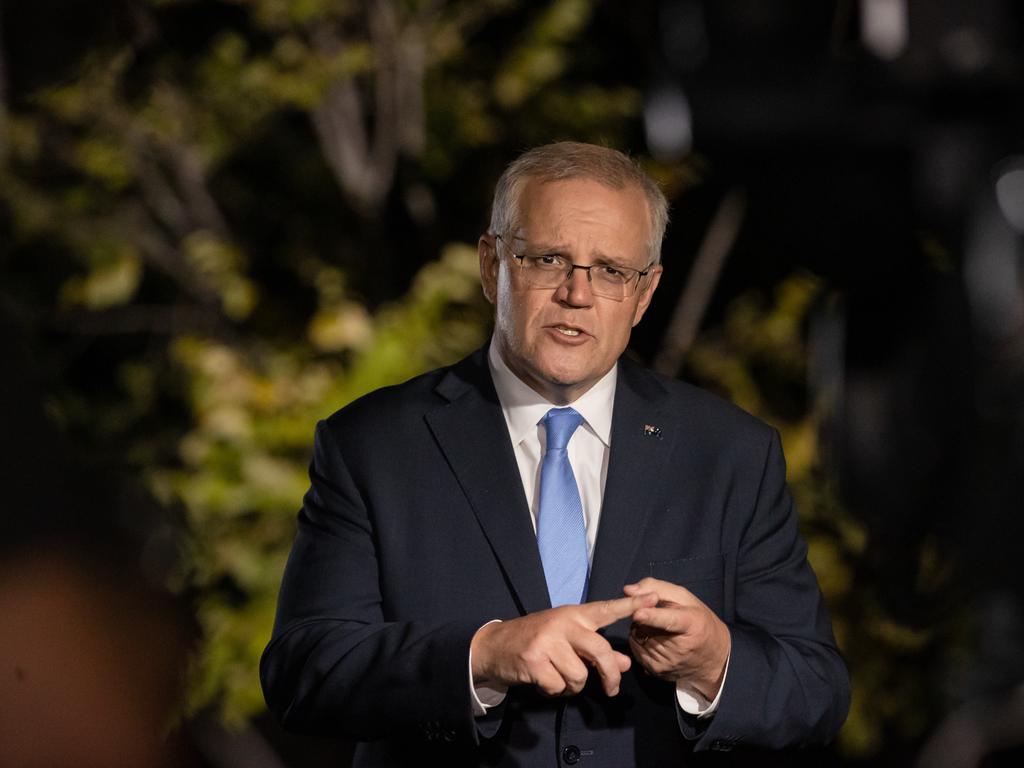


As Scott Morrison embarks on the 2022 election journey, he looks a little like the Irish-American tourist who, in search of his ancestral village of O’Seanacain, gets lost in the tangle of Ireland’s country lanes. He stops to ask a local farmer for directions. The farmer pauses, takes the pipe from his mouth and says: “If you’re looking to go to O’Seanacain I wouldn’t be starting from here.”